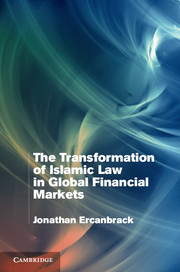Description
The Transformation of Islamic Law in Global Financial Markets
Author: Ercanbrack Jonathan
This contextual analysis of Islamic financial law challenges our understanding of both Islamic law and global financial markets.
Language: English
Subject for The Transformation of Islamic Law in Global Financial...:
Approximative price 126.22 €
In Print (Delivery period: 14 days).
Add to cart
Publication date: 01-2015
424 p. · 16x23.7 cm · Hardback
424 p. · 16x23.7 cm · Hardback
Description
/li>Contents
/li>Biography
/li>
The role of global capital in relation to human social systems has assumed enormous proportions in liberalised, deregulated markets. States attempt to nationalise it, financial centres spring up in its wake, and INGOs attempt to deal with its de-territorialising, supranational characteristics. A global adjudication system (arbitration) has been introduced to safeguard and buttress its flow. The power of Islamic capital has generated numerous sites of legal contestation and negotiation, ranging from gateway financial centres, international law firms and transnational financial institutions, all of which interact in the production of Islamic financial law (IFL). The process of producing IFL illustrates complex fields of action driven by power dynamics, neoliberal paradigms and the institutional momentum of the global economy. The municipal legal systems under study in this book (the United Kingdom, Bahrain, United Arab Emirates and the Dubai International Financial Centre) illustrate globalisation's acceleration of legal, economic and social production.
1. Introduction; 2. The sharia: sources, legal theory and unofficial sources of law; 3. Islamic commercial doctrine and classical commercial transactions; 4. Global financial markets and legal transformation; 5. Vehicular legal systems: the legislative implementation of sharia principles; 6. The regulation of Islamic financial institutions in the United Kingdom; 7. The regulation of Islamic financial institutions in Bahrain; 8. The regulation of Islamic financial institutions in the United Arab Emirates; 9. The regulation of Islamic financial institutions in the Dubai International Financial Centre (DIFC); 10. The enforcement of non-national legal systems: the arbitration of Islamic financial disputes; 11. Conclusion.
Jonathan G. Ercanbrack is Lecturer in the Law of Islamic Finance and Assistant Director of the Centre for Islamic and Middle Eastern Law at SOAS, University of London.
© 2024 LAVOISIER S.A.S.




